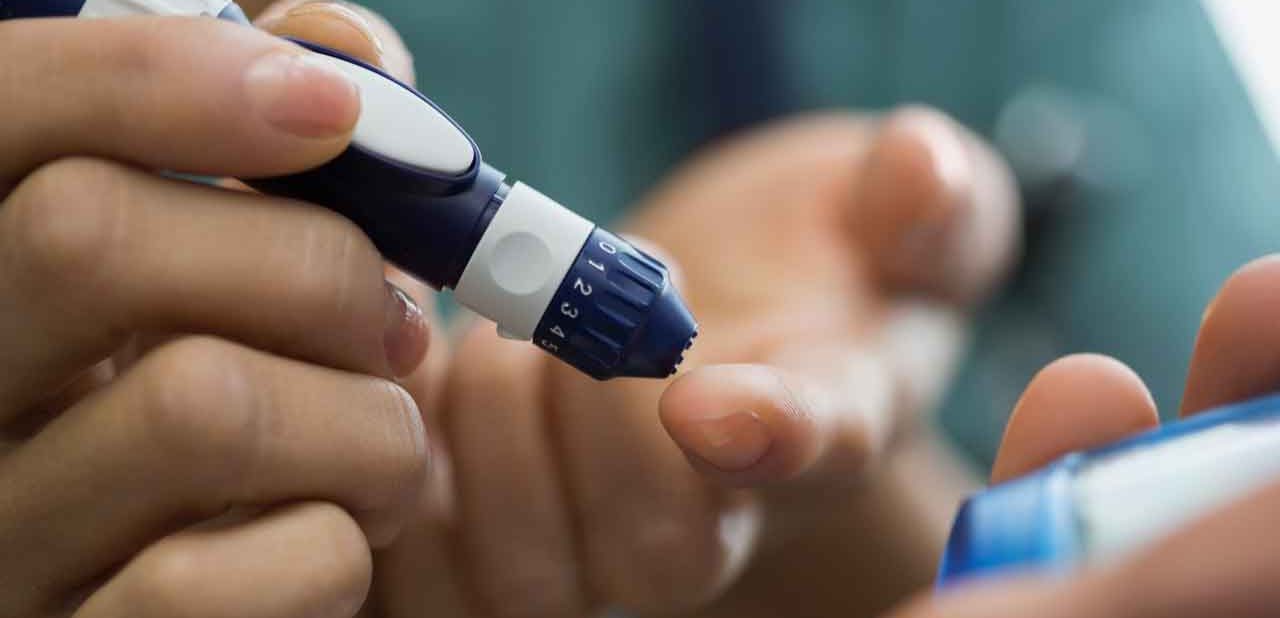How Do You Get Diabetes? Four Lesser-Known Causes

Wondering how do you get diabetes? Eating too many carbohydrates isn’t the only cause. Here are four risk factors of type 2 diabetes that you might not know much about.
Do you know if your blood sugar levels are healthy? How do you get diabetes if they aren't? More than one in three of all Americans have prediabetes — blood sugar levels that are higher than normal but not enough to be classified as type 2 diabetes. Unless they lose weight and exercise more, 15 percent to 30 percent of the prediabetic group will develop type 2 diabetes within five years. In addition, nearly 28 percent of Americans with diabetes don’t know they have the disease, according to estimates from the Centers for Disease Control and Prevention.
YOU MIGHT ALSO LIKE: Debunking the Misconceptions of Diabetes
So, how do you get diabetes?
The familiar explanation for what causes type 2 diabetes is that you ate too much junk carbohydrates — soda and other sweets, as well as white bread and potatoes — and became too fat, making your body less responsive to insulin, the body chemical that manages blood sugar levels. We now know that although it’s still essential to limit or cut out those foods to maintain your health, other factors also play a role in diabetes.
1. Inflammation heightens the risk of diabetes
Inflammation is your body’s response to a threat. Air pollution, gum disease, a poor diet, and obesity all can create persistent, low-level inflammation in your body.
If you are fat in the middle, it’s especially important to lose weight. Most belly fat is ectopic fat, which secretes inflammatory chemicals and hides in your muscles and liver. Ectopic fat is one reason obese men are about seven times more likely to get diabetes than men in a normal weight range. Obese women are 12 times more at risk.
2. Your genes make a difference
You can be pre-diabetic or even diabetic without being obese, if you have a genetic tendency to develop ectopic fat.
Some obese people don’t have the tendency towards ectopic fat and have less risk of diabetes. However, losing weight, especially around the belly, will still help protect them from the disease and boost their health in many other ways as well. To lose invisible ectopic fat, people generally need to lose visible fat, too.
3. Mitochondria problems
These batteries in our cells generate waste products, including free radicals, kept in check by antioxidants. You’ve probably seen the word antioxidants on vitamin labels. If you are short on antioxidants, the mitochondria don’t work as well and will produce less of the insulin you need to manage your blood sugar.
YOU MIGHT ALSO LIKE: Losing Weight Can Reverse Type 2 Diabetes
4. Emotional stress can feed diabetes
People who have experienced at least one major unhappy event, like serious financial troubles, divorce, or bereavement, are more likely to develop diabetes within the next five years, according to some research. Depression, anger, anxiety, and sleeping problems are all associated with diabetes, too. Stress raises your level of the hormone cortisol, which can influence the liver to produce too much blood sugar. Also, stressed people are more likely to gain weight, eat poorly, and skip exercise.
When you’re stressed the last thing you want to hear from your doctor is that you need to lose weight — or you’ll get sick. But don’t ignore this advice. Over time, uncontrolled high blood sugar can lead to damaged eyes.
How to prevent diabetes
George Kind, MD, chief scientific officer at Harvard’s Diabetes Center and the co-author of “The Diabetes Reset,” points out that you can cut your risk dramatically if you increase your exercise and change your diet. Changing your habits even a bit may seem inconvenient and time-consuming, but diabetes will be much so. This illness is far harder to deal with than the changes required to prevent it.
In fact, small changes can make a big difference. The landmark Diabetes Prevention Program study, which followed more than 3,200 volunteers with prediabetes for three years, concluded that people who lost just 5 to 7 percent of their body weight (that’s 12.5 pounds for a 180-pound person) and upped their exercise cut their chances of developing diabetes by almost 60 percent.
One rule-of-thumb: Reserve half of your plate for vegetables and fruit; one-fourth for lean protein like chicken, fish, or lean red meat; and one-fourth for complex grains and legumes. Keep fat to 15 percent of all your calories.
Exercise for half an hour five days a week. Even a brisk walk will help cut your diabetes risk.
Skip the vitamins. Although millions of Americans take antioxidant vitamins — vitamin C and E in particular — research indicates that these supplements probably don’t help and may trick your body into suppressing its natural antioxidants. Instead of taking vitamins, eat foods known to be high in compounds that trigger those natural oxidants. Drink green tea or eat broccoli or blueberries.
YOU MIGHT ALSO LIKE: Bariatric Surgery Can Reverse Type 2 Diabetes
Updated:
February 28, 2020
Reviewed By:
Janet O’Dell, RN